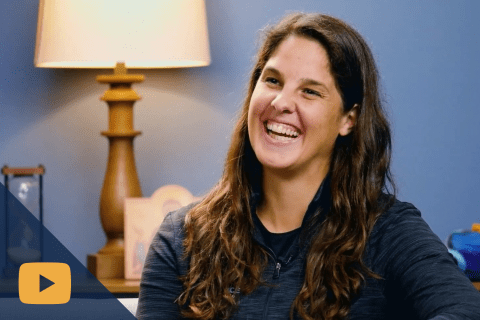
Connecticut, my state of residence, is at it again. Every year for the past several years, the state legislature has introduced a bill allowing euthanasia in the state, and every year they get a bit closer to passing some form of law permitting it.
When the bill goes to committee, the usual rhetoric heats up. Pro-euthanasia groups predictably carry on about the right to choose, arguing that end-of-life suffering is needless and pointless. It sounds so reasonable, and the suffering seems so easy to solve.
The Catholic side of the argument is much more nuanced. How do you explain God’s gift of life to dogmatic politicians? How do you define life’s value, as exemplified by the life of Jesus? How do you show that suffering has meaning when so many have already decided that Jesus’ example on the cross is nothing of significance?
Unfortunately, our arguments often fall on deaf ears. You know the argument on the other side: “This body is my body, and it is in my possession. What I do with my body is my business.” There can be no dissenting on this issue. Whether we choose to abort what’s inside or whether and how we treat a disease is a matter of our personal business. This mechanistic view of the human person and healthcare further says that when we decide to finish our life is only our business, as well.
And that view holds with cases of suffering. Within that view of the human person, the end of life is just that: the end of life, and nothing more. It signifies nothing, and it looks the same for everyone. It’s miserable, painful, and it doesn’t matter. The reasoning is that the pain is not who you are, and it’s not how you want to be remembered. Therefore, the argument goes, getting through suffering as quickly as possible should be on the top of almost everyone’s agenda.
As Catholics, we know better than to fall for such superficial arguments. This life is not our life; the Psalmist says, “For you formed my inward parts, you knitted me together in my mother’s womb” (Psalm 139:13). Instead, it is the life that God has given us.
And it is not our life in how we use it: 1 Samuel 12:24 says, “Only fear the Lord and serve him faithfully with all your heart. For consider what great things he has done for you.” We are here to worship and to serve. Nothing else matters.
So we do serve others, even and especially with the inherent wickedness of the world. And we act with that God-given body. Society mandates that we do everything from getting simple immunizations, including the COVID-19 virus vaccine, to even serving wars, where the government might call us to lay down our lives. Clearly, at both the theological and legal levels of discourse, this never was our body entirely anyway. We have to do things with our bodies that we might not otherwise do in the name of service to others. It could be consciously not spreading disease, going places to get educated, or even occasionally losing one’s life in the service of one’s country.
But as Christians, we take that thought even one step further. Yes, we do the above with our bodies to serve society. But most importantly, all of those actions can be pleasing to God in the proper context. We please him by getting educated to serve him and sacrifice our life for someone else’s. Giving our life in such a way recreates Christ’s sacrifice and creates a more perfect union with Christ and his ultimate sacrifice on the cross. 1 Peter 2:24 says, “He himself bore our sins in his body on the tree, that we might die to sin and live to righteousness. By his wounds you have been healed.” It was never just my body.
Faithful service can come only with true humility. We don’t know where faith may take us. We may enjoy long life and health. But God may put us in conditions where we experience not happiness, but grief, pain, and sorrow.
But whatever we experience, we know we must use our bodies to serve.
This subservience isn’t what contemporary society wants to hear. In the worldly realm, individual rights reign supreme. The sniff of anyone trampling on those rights is castigated as wrongheaded and dangerous. And so we attempt to trample on God.
But those of faith know not to attempt the contemptuous. True faith means true life. Faith gives purpose and steels resolve. Faith brings a life well-lived, “a life worthy of the calling you received” (Ephesians 4:1). It’s the only life that matters. Giving up our body saves our soul.
This life is not our life; the Psalmist says, “For you formed my inward parts, you knitted me together in my mother’s womb” (Psalm 139:13). Instead, it is the life that God has given us.
Though we go to the public well with that argument in mind, we can’t vocalize it. The secular would instantly silence us. “It’s a grave imposition of religion on the state!” the theory says. They must be separated. We can’t talk about Christ, about God, and we can’t quote Scripture. It won’t work. We believe this even though we know the rightness of the word of God.
But how do we proceed? It’s easy. Those who live in Christ live in grace. “And God is able to make all grace abound to you, so that having all sufficiency in all things at all times, you may abound in every good work.” (2 Corinthians 9:8). Our sins are forgiven. We see the world for what it is: a fallen place, covered in sin, fear, and death, without hope except in the name of Jesus Christ. Leaders will therefore fail. Their decisions will not be rational, and empires and their institutions will crumble. Meanwhile, people will live hurt, broken, and alone every day.
But that’s where our secular argument begins. Because we see these crumbling institutions and poor decisions everywhere we look, we know that we still have hope to save some people with Christ’s help. Yes, ultimately, this world will degenerate and fail. The book of Revelation makes that abundantly clear. But, in the meantime, we are called to do what we can to save those we can and provide comfort and care for all we can. And a small but essential part of this is opposing euthanasia.
The irrationality is apparent: those who support euthanasia will quickly push the envelope. It’s the slippery slope argument. The first decision for euthanasia might be straightforward and seemingly clear: the cancer patient overwhelmed with pain. But ultimately, the decisions will become more and more morally unclear, even for those not enveloped in grace. Those who have not maximized medical treatment will demand euthanasia. The mentally ill will petition for euthanasia rights even before meaningful treatment has begun.
And then it will get worse: the state could decide that certain groups require euthanasia. Those with Down syndrome or other anomalies could be subject to the state’s whims when deciding their terminal condition.
Think this can’t happen? Think again. In places where euthanasia legally exists, all these scenarios and more have come to pass. A sample from the Netherlands, where euthanasia’s legality approaches twenty years:
- A case where family members held down a struggling dementia patient, forcing her to drink sedative-laced coffee against her will.
- Performing euthanasia for osteoarthritis, with the patient having pursued no other treatments to alleviate pain.
- Physicians were not consulting others before proceeding with euthanasia or even going behind the back of consultants who had said it was not proper in that particular case.
- Many instances exist of newborns euthanized without the consent or knowledge of parents.
And from Belgium:
- Although no psychiatric care had been given for the previous 15 years, doctors performed euthanasia on a patient for psychiatric conditions.
It is truly the human condition: we start with a good concept, but we will push it. We will move it too far, taking the idea to places it was not meant to go. We do this as fallible human beings. But more importantly, we do this as fallen human beings. We live in a world where Satan roams, and sin prevails. And yet, it looks so reasonable, shiny, and new. “The Devil often transforms himself into an angel to tempt men, some for their instruction, some for their ruin” (St. Augustine). In this world, the slippery slope is inevitable.
When I look at those who request euthanasia or gingerly ask me about it, I do see suffering children of God. But as a physician, I also see the undertreated patient... Properly implemented, the physician’s toolbox can comfort anyone in their agony. Uncontrolled pain does not have to happen.
And so that’s where the secular argument begins to crumble. Euthanasia will at first be something that seems to be almost heroic. “I am putting myself out of my misery to spare my family the agony,” a long-suffering patient might explain. “I will be the first in my state to do this brave act of self-sacrifice,” another will indeed proclaim.
But later, as those who can’t speak for themselves are lined up for euthanasia, the glow will fade. Those who shun treatment will want that right as well. And as a practicing physician, I know there will be somebody out there who will surely give it to them. No longer black and white, a sea of gray infiltrates the practice of euthanasia. Questions will be raised, some very difficult to answer:
- What precisely is a terminal condition?
- Can anyone be competent in the taking of their own life? Or, does the pain and emotion with suffering render one unable to decide rationally?
- How do we stop people from pressuring one another for nefarious, selfish reasons?
- Could financial considerations ever be a legitimate concern?
- Can mental illnesses be a reason for euthanasia? Are the mentally ill truly competent to decide?
- Who decides what appropriate or inappropriate euthanasia is?
- How do we decide competency in such important issues?
- Could we dare do this to children, supposedly for their benefits?
The secular can have no set answers to these questions in the endlessly subjective material world we must endure.
But what about those who suffer so very much? The counter-argument to these moral arguments might be that the arguments themselves are of secondary concern. Doesn’t the suffering trump any other theoretical, practical, or ethical considerations in the matter? Isn’t the practice of ending suffering the most important thing? For the secular vision of the world, this would seem to be true. And I have spent the most significant part of my life treating those who certainly believe it to be true.
But as a practicing hospice and palliative physician, I know that suffering is not inevitable. Oh sure, I cannot promise the metastatic carcinoma that’s spread to the bones will never cause any pain, but I do know that with sufficient expertise and medication, that pain can be controlled.
No, suffering does not have to happen. When I look at those who request euthanasia or gingerly ask me about it, I do see suffering children of God. But as a physician, I also see the undertreated patient. The hospice system can certainly work for them. Properly implemented, the physician’s toolbox can comfort anyone in their agony. Uncontrolled pain does not have to happen.
But as Christians, we should know that we don’t have to suffer. Suffering is pain without meaning, despair without hope. For the faithful, everything we do, all we experience, has meaning. We know we will be tested. We know God will reward us in part for what we have endured. We know that pain unites us in Christ. So, yes, we feel as much pain as the next person. But we know that pain matters. And we know that pain shows others what faith looks like. One of the most significant sources of spiritual strength is to see somebody who lives that faith despite their pain.
Dying hurts. But it also matters, and it also teaches. Christ’s suffering taught us about sin, sacrifice, redemption, and hope. His gift made it all possible.
As we reflect on the merits of euthanasia, we know God values life in all its possibilities and its conclusions. His redemption through suffering means that suffering matters. And we know that fallible human beings interfering with this process ultimately degrade the process. Life’s essence devalues, and we view one another even more mechanistically than before. We are all worse for that.
As a physician, I know that we can provide comfort and are privileged to provide that relief to the suffering. For Catholics, that pain can be a lesson to the self and others, and hope is not lost. It’s a hard sell to be sure, but a worthy one. And we know that at the end of that terrible pain is comfort. That comfort is undoubtedly available to everyone if only we ask.


